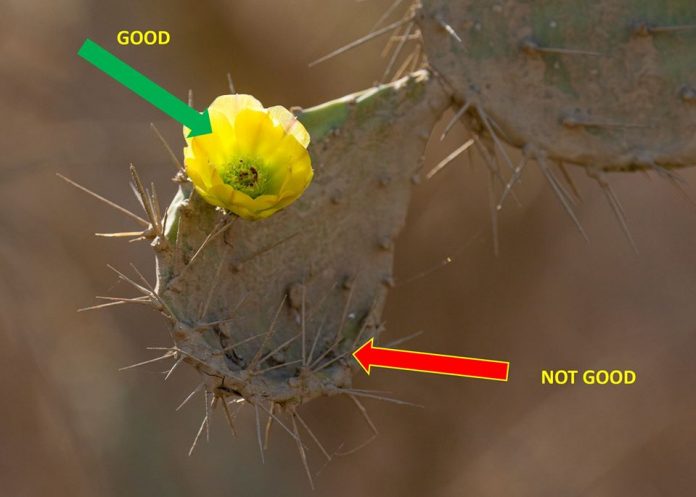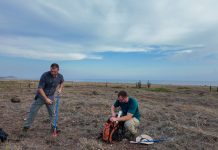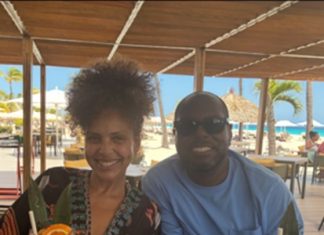Aruba Birdlife Conservation, a nature NGO established on Aruba, is herewith requesting you to instate, and as soon as possible, a National Nature and Environment Committee.
It is quite predictable at this time which mistakes we will be repeating as a country. After the refinery closed down in 1985, we tried to ‘build’, i.e. we turned to the construction sector to make the island move forward. Please note that that ‘solution’, over the years has had many negative effects. It has doubled our population density, it has reduced our quality product and turned it into an over-tourism quantity machine. Not only were the people of Aruba unhappy with the chosen direction, but it has also exposed our island to international real estate-related crime.
Innovation entails using an ecological approach to recovery and resilience. We must avoid making the same mistakes all over again.
Just take a look at the attached pictures taken during a one hour walk in our national park and see for yourselves where we will be headed if we repeat the same mistakes once again.
So here is a first draft of an itemized agenda for a National Nature and Environment Committee.
- Correcting the AHATA in ATA over-representation of investors. Introducing a new board structure in which the general well-being of Aruba prevails above ‘special group interests’. The pictures taken in the park are symbolic of this misrepresentation in the board of ATA. If a balance had initially been introduced in the board’s design, no such thing as ‘adventure tourism’ would have existed today and our nature resources would not have been destroyed to such an extreme extent. A serious correction is required here. Similar to the national approach to COVID19, different curves will also have to be bent in the tourism sector, the UTVs/ATVs and watersports sector as a start.
- Enforce legislation on more hotels and condominiums (Moratorium: No more extra 6000 or 5000 or 3000 or 1000 hotel and condo rooms! Just no more as in zero more.).
- Retrofit existing half-built resort infrastructures to vertical farming and housing for elderly, young professionals and families.
- After 8 years of political promises, it is time to finalize the process of protecting the 16 nature areas and placing them officially under full supervision of our national park.
- Adapt the existing unprofessional marine park design to a responsible island full surrounding marine park with holistic spatial planning, zoning regulation and appropriate enforcement.
- Free Parke National Arikok from misguided political influences intended to put ‘special interest groups’ first and give FPNA all financial and other support required to run our national parks as professionally as possible. Earmark a part of ATA’s budget for park management, with no strings attached. Involve and delegate nature conservation work to Aruba’s nature conservation NGOs.
- Introduce ‘Rights of Nature’ for Aruba. Enforce regulation and control of nature, taxes and labor, to the benefit of the people living in harmony with Aruba’s nature; shift from quantity to quality. Meaningful stakeholders should be involved in the redesign of such a modern coherent nature and environmental legislation. They should also be involved in the enforcement redesign.
- Develop a national high-quality nature certification program. Participation of citizens in such a program should be ongoing and free of charge. Only individuals who have such certificates should be permitted to participate in nature-related economic activities.
- Introduce a ‘National Education Nature Platform’. Introduce nature conservation in our educational system on all levels. Have the University of Aruba chair and take a lead role in this process.
- Redesigning the social economic model for Aruba based on sustainability and well-being and adopt corporate citizenship legislation that assures investors invest in nature conservation and contribute to a national education fund.
- Enforce strict regulation of waste management.
- Adopt international quality standards for energy, ocean, and land.
- Regulate natural resource extraction (fishing, poaching, mining, goats grazing).
- Regulate pollution sources (pesticides, fertilizers, poorly-maintained vehicles, soil erosion from deforested areas and sand roads, etc.).
- Give high priority to correcting the faulty water treatment plant.
- Regulate Aruba’s groundwater resources, revisit illegal dumpsites, clean up the toxic mess.
- Develop a national plan for climate change impact on Aruba.
- Consider not re-opening the refinery, cleaning the area and re-using the terrains over time for sustainable economic development, responsible energy production and housing facilities. A very good place to get the construction sector involved in moving Aruba forward in a sustainable way.
If you might find such an agenda too challenging, we can help bring the right people to the table who will be willing to contribute to the solutions at hand.
Sincerely,
Greg Peterson, chairman
Aruba Birdlife Conservation


















